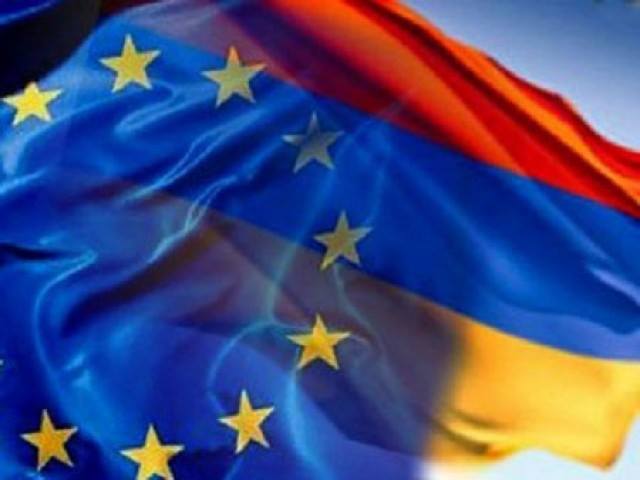EU-Armenia: 11th Human Rights Dialogue joint press release
On 25 March 2021, the European Union and Armenia held the 11th round of their regular Human Rights Dialogue, this year in virtual format. Following the entry into force of the EU-Armenia Comprehensive and Enhanced Partnership Agreement (CEPA) on 1 March 2021, both sides reiterated their commitment to continue its implementation. The CEPA commits the EU and Armenia to further strengthening respect for fundamental freedoms.
EU Special Representative for Human Rights, Eamon Gilmore, took part in the discussion. His presence underscored the importance that the EU attaches to human rights in EU-Armenia relations. He provided an overview of the developments related to human rights within the EU, paying particular attention to the tools and instruments used by the EU to address particular recent human rights challenges.
At the meeting, the EU and Armenia discussed reforms in the judicial and penitentiary sector, antidiscrimination policy, gender equality and domestic violence, freedom of assembly and expression, and labour rights. The two sides also discussed the implications of the COVID-19 pandemic and of the war in the Nagorno-Karabakh conflict area on human rights and the humanitarian situation. The EU reiterated its support, including with humanitarian aid, to all the civilian populations affected by the conflict. Armenia’s commitments to human and labour rights and good governance in the context of the EU’s GSP+ were also discussed.
Read also
In light of the early elections in Armenia announced for 20 June 2021, the EU and Armenia paid particular attention to issues of electoral reform on the national and also local level. They took stock of the continued efforts of the Armenian authorities to safeguard the integrity of the electoral process and its institutions. Both sides also discussed the essential measures that need to be put in place to organize safe elections in light of the present public health challenges.
In the meeting, Armenia confirmed its commitment to pursue justice reforms, notably to the principle of equality before the law, to an independent judiciary and to an effective mechanism of checks and balances. The EU and Armenia took stock of Armenia’s National Human Rights Strategy and the Action Plan and its implementation. They also discussed the importance of key institutions to effectively address human rights issues, including the Human Rights Defender’s office (Ombudsman).
The EU and Armenia also discussed the National Strategy on Gender Equality 2019-2023. Both sides highlighted the importance of raising public awareness and promoting gender equality and women’s empowerment, especially through education, and reiterated their support to this matter.
In line with its policy, the EU met and consulted representatives of the Armenian and international civil society prior to the Human Rights Dialogue. The Dialogue meeting resulted in operational conclusions with concrete actions, which will be monitored and followed up over the next year.
The Armenian delegation was headed by Mr Avet Adonts, Deputy Minister of Foreign Affairs, while the EU delegation was led by Mr Richard Tibbels, Head of Division for bilateral relations with Eastern Partnership countries at the European External Action Service. Mr Arman Tatoyan, Armenian Human Rights Defender, and Mr Vassilis Maragos, Head of Unit responsible for cooperation with Armenia at the European Commission, also participated in the meeting.
European Union



















































